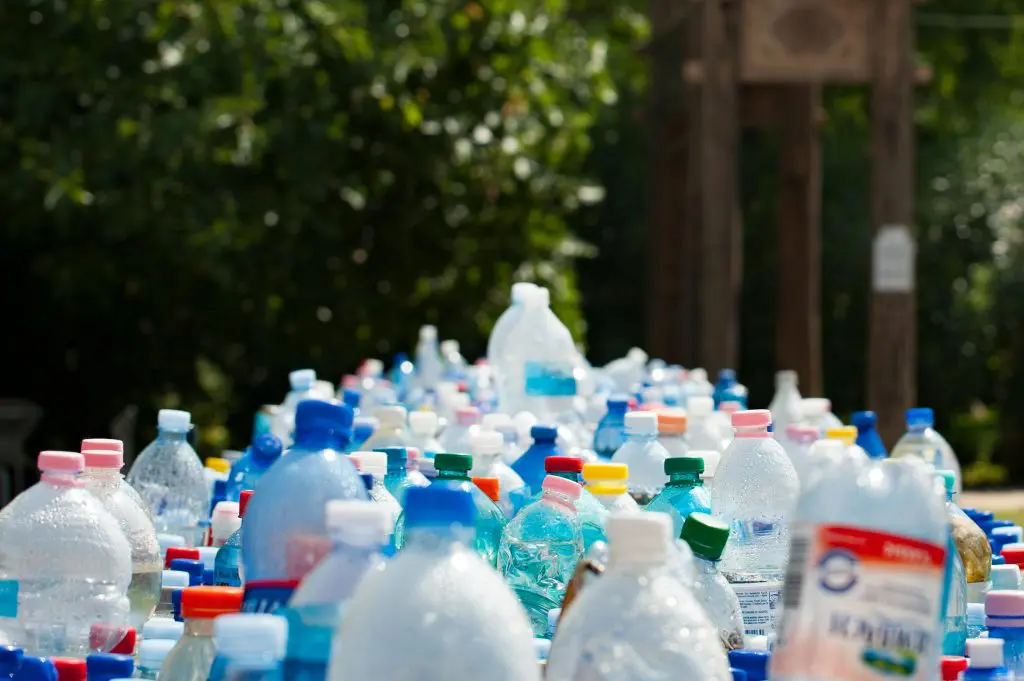
Time for Talking Rubbish: Singer’s Plea Highlights Waste Transport Concerns A folk singer from Northern Ireland has released a song criticising the long-distance transport of recyclable waste from Cambridgeshire to Northern Ireland. Colum Sands’ YouTube track, Time for Talking Rubbish, urges Cambridge City Council and South Cambridgeshire District Council to process recycling closer to home […]
A folk singer from Northern Ireland has released a song criticising the long-distance transport of recyclable waste from Cambridgeshire to Northern Ireland. Colum Sands’ YouTube track, Time for Talking Rubbish, urges Cambridge City Council and South Cambridgeshire District Council to process recycling closer to home and questions the environmental and ethical implications of sending waste over 400 miles away.
Colum Sands, also a member of the environmental group Rostrevor Action Respecting the Environment, wrote the song as a ‘song-letter’ addressed to the councils. It directly questions whether they would ‘store leaking rubbish all along the River Cam’, highlighting his concern that exporting waste to another community undermines the principles of responsible waste management and environmental justice.
Since March 2024, recyclable waste from Cambridgeshire has been sent to a materials recovery facility (MRF) in Newry, County Down, operated by Re-Gen Waste. The arrangement followed a contract awarded to the company in January by both councils.
During a Cambridge City Council meeting in July, Green Party councillor Jean Glasberg raised concerns that Re-Gen had still not established a promised mainland UK MRF, which had been mentioned by the company earlier in the year. She asked whether the council had investigated this delay.
In response, Labour councillor Rosy Moore, cabinet member for climate action and environment, said there had been no contractual failure because the agreement was based on the use of the Newry facility. She confirmed Re-Gen was still pursuing plans for a UK-based MRF, but no timeline was available.
Some residents living near Warrenpoint Port, close to the Newry facility, have complained of odours linked to waste processing. Colum Sands and other local campaigners have voiced concerns that the facility may be overburdened.
Re-Gen, however, clarified that the material being sent from Cambridgeshire consists of mixed dry recyclables, which are handled at its ‘state-of-the-art facility’ and are not stored at the harbour. The company emphasised that its ‘strategic goal’ remains to acquire a recycling facility on the UK mainland.
The situation has prompted broader questions around the UK’s commitment to the circular economy — a model that aims to keep resources in use for as long as possible, extract maximum value, and regenerate natural systems. Transporting waste across the Irish Sea runs counter to the principles of a circular economy, which favour processing waste as close to its source as possible.
Northern Ireland’s Department of Agriculture, Environment and Rural Affairs (DAERA) has been actively promoting circular economy strategies to reduce landfill use, improve recycling rates, and increase local reprocessing capacity. However, when waste is imported from other regions, it may place added strain on infrastructure, hinder progress toward regional targets, and undermine local public support.
While contracts such as the one between Cambridgeshire councils and Re-Gen Waste may be legal and technically functional, public scrutiny is increasing around the environmental cost and fairness of such arrangements.
Sands’ song has already gained traction online, with over 1,000 views, and is helping elevate public discourse about waste transparency and accountability. It also brings attention to how communities on the receiving end of exported waste often have little say in these decisions.
The case of Cambridgeshire’s recycling being processed in Newry raises serious questions about the sustainability, transparency, and fairness of the UK’s waste management systems. Colum Sands’ Time for Talking Rubbish offers a cultural and political critique, asking why waste is being shipped hundreds of miles instead of being dealt with locally.
As the UK moves toward a more circular, carbon-conscious future, decision-makers across all jurisdictions must re-evaluate practices that shift environmental responsibility onto distant communities. Supporting local infrastructure, encouraging localised recycling, and holding companies accountable for their sustainability promises are essential steps forward.
The circular economy discourages long-distance waste transport, promoting local recycling and reprocessing.
Northern Ireland’s waste infrastructure is under pressure from both domestic and imported waste.
Re-Gen Waste aims to establish a mainland UK facility but has yet to do so.
Community concerns in Northern Ireland spotlight the social dimension of cross-border waste contracts.
At All-Ireland Sustainability, we’re committed to building a greener, fairer island—together. Stay informed on the latest environmental initiatives, community action, and policy developments shaping sustainability across Ireland, North and South.
👉 Sign up for our newsletter today and be the first to hear about upcoming events, expert insights, and ways to get involved.
Whether you’re a seasoned advocate or just starting your journey, new members are always welcome—your voice matters.
Subscribe now and be part of the All-Ireland Sustainability network.